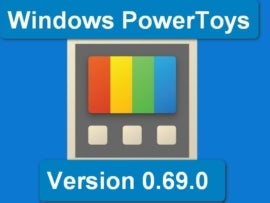
Image: anyaberkut/Getty Images/iStockphoto
Because of COVID-19 regulations, the long-standing real estate process had to change, and quickly: There was no in-person open house, brokers’ open or walk-through of houses for potential buyers, their agent and the seller’s agent. Wheels spun and innovation happened. Property technology has upended everything from virtual showings to closings.
“Real estate technology has transformed the industry, putting more control in the hands of consumers and giving salespeople flexible solutions,” said Laura Adams, senior real estate analyst at Aceable. “While online listings, drone showings, and remote closings existed before the pandemic, they’ve become the norm.”
The pandemic has pushed the real estate market into a stratosphere unseen since 2006, but the coronavirus-era success is poised to be “the inverse” of 15 years ago, when the bubble burst and the worldwide recession began. Today’s buyers, experts said, have higher credit ratings and put more cash down to purchase homes, which are steadily increasing in price throughout the U.S. In 2020, the country saw its highest levels in home sales in 14 years, and experts predict 2021 to surpass that.
SEE: The CIO’s guide to quantum computing (free PDF) (TechRepublic)
Sheltering at home allowed—or forced—people to save more money and the real estate industry got a serious bump from the latest in real estate tech, resulting in the ability to afford a new home and the interest in finding one. Long ago, brokers found listings and presented them to buyers. But with the dawn of the internet for all, buyers harnessed their own power and scoured the listing platforms: The MLS, Zillow, Redfin and Realtor.com, among others.
“The most common technology used today by any consumer is real estate listing portals like Zillow or Redfin,” said Jake Hite, LendingHome director of product. “However, as disjointed property and county records get unified and consistent, there will be an immense amount of opportunity to use machine learning to understand micro and macro trends of real estate, down to renovations, tile choices, etc.”
Pandemic-spurred innovation included a first in a contactless solution: Schlage created a Wi-Fi deadbolt the Schlage Encode Lock, which enables “a reinvention” of the home tour and allows safe distancing; security features include a remote locking feature for a smartphone.
The days of sending a junior agent to take some quick Instamatic shots of each empty room of an available house were long gone. Sophistication, technology and trend took over. By 2000, individual agents were having websites created for their individual listings, independent of what their brokerage was doing online. They learned what was most alluring to highlight: kitchens and bathrooms, with the entire home beautifully photographed. Eventually and with the bandwidth could handle it came the trembling hands, the walk-throughs recorded on video, often with equally shaky narration. There was nowhere to go but up.
Depending on the market, houses at a certain price range were professionally staged, with interior designers weighing in and filling homes with fancy furniture, making each house look like a show home. Real estate tech sent brokers and individual agents scrambling to ensure they had an up-to-date website and a strong social media presence. The competition was afoot.
SEE: Virtual events don’t have to be tiresome: Okta came up with a new way (TechRepublic)
And to be competitive, real estate agents budget tech pros to come in. “Always, always hire professionals,” advised Robin Zacha of Zacha Homes, a veteran Realtor for Los Angeles’ westside for three decades, whose current listings are in the $2 million to $5+ million range. Zacha noted that shooting the 360-degree specialty house tours should never be attempted by agents “There’s no way I’d do it. There are so many specific, necessary shots to be taken, and executed in a very particular way.” In the end, she said, investing in the budget needed to show a house to its best advantage far outweighs efforts to cut costs.
A well-shot video tour can reveal the differences between a living room, a great room and a family room, show the covered porch “added without permit” and visually decipher what seems like real-estate slang or short-cut talk in the online listing.
Last week, Samsung announced that Groopview hopes to transform the way real estate agents give virtual tours by using a Samsung Galaxy S21 5G smartphone and Verizon’s 5G network. “Agents will be able to stream video from both rear and front cameras simultaneously, giving viewers a complete house viewing in high definition while continuing to maintain eye contact and build rapport with buyers,” a Samsung rep explained.
“Right now there’s 360-degree tours in rooms along with more expansive ‘interactive’ tours where the buyer has more opportunity to point and click to direct themselves through the VR [virtual reality] version of the home,” said Nick Drewe, founder and CEO of WeThrift. Drewe’s interest in VR expanded during the pandemic to focus on proptech. “Some production companies are going even further with full-scale ‘experiences’ to help Realtors sell homes. Of course, the more exciting the tech, the more expensive it can be, but generally the investment should be worthwhile as this becomes more commonplace. It’s pretty edgy right now but buyers get a kick out of it and anything that can set a home apart from others is always a positive. I definitely feel like NYC and L.A. markets, likely Miami too, are at the forefront of this, but it’ll make its way to the rest of the country in due time.”
Adams said that “just about every step of buying a home has been improved by ‘proptech’ (property tech),” and she cited the online tools available: Mortgage calculators, home lenders, listing marketplaces, communications with agents, video tours and drone showings, neighborhood research, document management for closings and more.
Mark Kinsella, vice president of engineering at Opendoor, concurred, “Proptech has emerged as a major force to help modernize many aspects of the real estate transaction.” He said that Opendoor “reinvented real estate transactions to be digital, on-demand, and more accessible.”
“Proptech is most important in cities where there is a large transient population, places that have a strong presence of universities, hospitals and a strong job market,” said Noaam Blum, CEO and co-founder of the platform RentBase. “This includes major cities like Philadelphia, Boston, San Francisco, NYC, Houston, Chicago, Miami. These cities have already begun to rebound quickly. I’ve spoken to agents from major cities across the country and they all say the same thing that anything that can help save them time with their business is greatly welcomed.”
The new platform Localize “harnesses the power of AI [artificial intelligence] to provide a cutting-edge experience for homebuyers and brokers,” explained Omer Granot, Localize president and COO. “[W]e streamline the house-hunting journey through” property insights and “our concierge texting service, Hunter by Localize.” Hunter curates properties specifically for each homebuyer through its “Smart Matching technology.”
It uses more than 100 data insights that are associated with a listing as well as a homebuyer’s specific preferences to send daily recommendations to prospective buyers “to find them the perfect home. When a buyer is ready to move forward, we match them with one of our partner agents.” Conversely, Hunter also operates as a virtual assistant for brokers, who send leads to Hunter which assists them with existing leads. They don’t need new leads, Granot said, they need help managing what they already have.
Another platform designed for the real estate industry is Forwarn which includes membership to the local MLS and access to different real estate transaction forms and free tools. “The application helps you verify a new prospect’s criminal history, bankruptcy history, property ownership history, and vehicle history by simply searching the phone number the prospect contracted you from,” explained residential developer Bill Samuel of the Chicago Area Realtors Association, which added Forwarn in June 2020. “Almost half of the interactions agents have are with individuals they have never met before so this new tool is great for helping everyone know who they are dealing with before conducting an in-person showing.”
AnthemIQ is a new commercial real estate transaction platform (February 2021). It “eliminates the unnecessary back-and-forth via email and ditching the need for outdated PDFs and spreadsheets,” said Kenny Tomlin, AnthemIQ co-founder and executive chairman. The platform uses “a technology-first strategy that empowers the entire CRE ecosystem” and provides a “streamlined digital workflow [that] encourages collaboration between tenant reps and leasing agents, so they can more quickly negotiate an agreement and get to a signed contract.”
Within the homes themselves, tech will continue to be important. “The smart home device market is expected to continually grow with household penetration increased by 40% in 2021 and is expected to hit 57.2% by 2025,” said Fatima Dicko, founder and CEO of the property platform Sugar, developers who “build communities in real-estate spaces.” Innovative new technologies and new tools for the home (facial recognition, video door alarms, remote-controlled locks, AI burglar alarms) will “push social efforts and connectivity with improved safety measures,” Dicko said.
Proptech, specifically the contactless tech, has trickled down and is already being used in temporary housing situations like Mint House, an apartment-style hotel, which offers mobile check-in, keyless entry to buildings and suites, and fitness devices for live and on-demand classes. Smart thermostats set the room at residents’ preferred temperature.
Money matters: Roofstock is a new platform geared toward single-family rental properties for those who want to diversify investments. According to the company, the vast majority (over 80%) of their customers are under 44, over 50% are under 35 and 75% are first-time real estate investors. “When the pandemic hit last March, many experts expected the housing market to be devastated. While we did experience a downturn in Q2 and Q3 of last year, in Q4 the market came roaring back, and we are now experiencing unprecedented levels of demand across our platform,” said Gary Beasley, CEO and co-founder of Roofstock, in a press release. He also added that the digital platform expanded geographic barriers. “In fact, COVID has encouraged people to increasingly transact digitally since travel has been restricted, and we’ve seen that over 90% of rentals purchased through Roofstock are more than 250 miles away from where the investor lives.”
Existing tech will be pivoted to further digitize the real estate space. Drone “sightseeing” is a way people can get an overview of a location they’re interested in, without having to actually travel there. “With particularly relaxed laws for drone flight, North Dakota, Arkansas, Oklahoma, and Nevada will likely be hot spots for real estate agents,” said Martin Orefice, founder of RentToOwn. “Geolocation helps analyze visual parameters like property data, topography, soils, and flood zone maps, areas that are prone to disaster. Geolocation can assess the location and assist real estate agents in finding safe properties for interested buyers. This is relevant in post-pandemic times because nobody wants to risk their lives again. Everyone wants to live in a safe place away from danger.”
Rany Burstein, CEO and founder of the apartment search platform Diggz.co, said, “The real estate tech space is huge and is going through a lot of innovation in recent years, but there are still a lot of opportunities to further innovate.” Burstein added that he’d like to see “an actual VR tour of a home,” and noted, “it will be an awesome experience to virtually walk into a space and really get a sense of the dimensions and feel of the place. This could be further augmented with a live agent in the same space in VR giving you a live tour. I think the future is heading there, fast.”
Updated June 1, 2021: Clarified direct quotes from Gary Beasley, CEO and co-founder of Roofstock.






